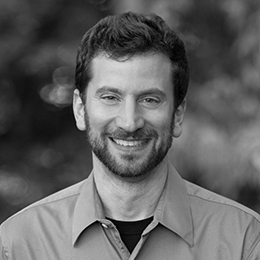No “Footprint,” No Life
As environmentalism continues to grow in prominence, more and more of us are trying to live a “greener” lifestyle. But the more “eco-friendly” you try to become, likely the more you find yourself confused and frustrated by the green message.
Have you tried giving up your bright and cheery incandescent light bulbs to save energy — only to learn that their gloomy-but-efficient compact fluorescent replacements contain mercury? Perhaps you’ve tried to free up space in landfills by foregoing the ease and convenience of disposable diapers — only to be criticized for the huge quantities of energy and water consumed in laundering those nasty cloth diapers. Even voicing support for renewable energy no longer seems to be green enough, as angry environmentalists protest the development of “pristine lands” for wind farms and solar power plants.
Why is it that no matter what sacrifices you make to try to reduce your “environmental footprint,” it never seems to be enough?
Well, consider why it is that you have an “environmental footprint” in the first place.
Everything we do to sustain our lives has an impact on nature. Every value we create to advance our well-being — every ounce of food we grow, every structure we build, every iPhone we manufacture — is produced by extracting raw materials and reshaping them to serve our needs. Every good thing in our lives comes from altering nature for our own benefit.
From the perspective of human life and happiness, a big “environmental footprint” is an enormous positive. This is why people in India and China are striving to increase theirs: to build better roads, more cars and computers, new factories and power plants and hospitals.
But for environmentalism, the size of your “footprint” is the measure of your guilt. Nature, according to green philosophy, is something to be left alone — to be preserved untouched by human activity. Their notion of an “environmental footprint” is intended as a measure of how much you “disturb” nature, with disturbing nature viewed as a sin requiring atonement. Just as the Christian concept of original sin conveys the message that human beings are stained with evil simply for having been born, the green concept of an “environmental footprint” implies that you should feel guilty for your very existence.
It should hardly be any surprise, then, that nothing you do to try to lighten your “footprint” will ever be deemed satisfactory. So long as you are still pursuing life-sustaining activities, whatever you do to reduce your impact on nature in one respect (e.g., cloth diapers) will simply lead to other impacts in other respects (e.g., water use) — like some perverse game of green whack-a-mole — and will be attacked and condemned by greens outraged at whatever “footprint” remains. So long as you still have some “footprint,” further penance is required; so long as you are still alive, no degree of sacrifice can erase your guilt.
The only way to leave no “footprint” would be to die — a conclusion that is not lost on many green ideologues. Consider the premise of the nonfiction bestseller titled “The World Without Us,” which fantasizes about how the earth would “recover” if all humanity suddenly became extinct. Or consider the chilling, anti-human conclusion of an op-ed discussing cloth versus disposable diapers: “From the earth’s point of view, it’s not all that important which kind of diapers you use. The important decision was having the baby.”
The next time you trustingly adopt a “green solution” like fluorescent lights, cloth diapers or wind farms, only to be puzzled when met with still further condemnation and calls for even more sacrifices, remember what counts as a final solution for these ideologues.
The only rational response to such a philosophy is to challenge it at its core. We must acknowledge that it is the essence of human survival to reshape nature for our own benefit, and that far from being a sin, it is our highest virtue. Don’t be fooled by the cries that industrial civilization is “unsustainable.” This cry dates to at least the 19th century, but is belied by the facts. Since the Industrial Revolution, population and life expectancy, to say nothing of the enjoyment of life, have steadily grown.
It is time to recognize environmentalism as a philosophy of guilt and sacrifice — and to reject it in favor of a philosophy that proudly upholds the value of human life.



